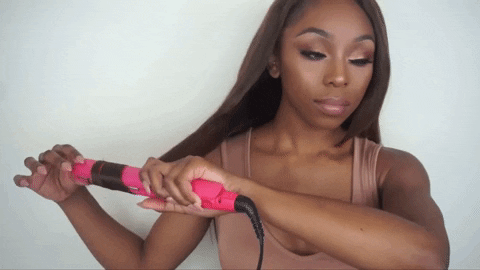
Typically, when people think of a nighttime routine, little children are who come to mind. Yet the reality is this is something that can be super beneficial for us as adults too. While I will be sure to put one together for us single folks sooner than later, today, I wanna offer up some tips for married couples. The reason why is simple. No matter how many husbands and wives that I work with, if there's a common thread that's among them all, it's the fact that they suck when it comes to going to bed. What I mean by that is, unless it's for the purpose of sex, a lot of them don't go to bed together and, if they do, they treat their bedroom either like another home office (laptops and work stuff all over the place) or an entertainment center (watching TV and constantly scrolling online). None of this creates a truly relaxing environment nor does it encourage couples to get in a few moments of intimacy together.
So, let's do it. Let's explore 12 ways that spouses can come up with a nighttime routine that can help them to chill out, sleep better and get closer to one another in the process.
1. Schedule in 30-60 Minutes Together. Every Night.
Around this time last year, I wrote an article entitled "7 Things Married Couples Should Do...At The END Of Their Day". One of the things I mentioned that really can't be expressed enough is the importance of carving out 30 minutes for nothing but quality time — and no, sitting in front of the television doesn't count. The reality is that couples, on average, only spend 2 ½ hours together and that includes the weekends. That's why it comes as absolutely no shock to me that some couples contemplate divorce, simply on the basis of "we grew apart". I mean, how were you gonna get closer if you don't even talk? You schedule in work. You schedule in exercise. You should definitely schedule in quality time with your partner. Making that a part of your nighttime routine is a way to make that happen.
2. Share ONE Need That You Have. THAT Day.
If needs never switched up, our spouse would be able to easily satisfy — as they do the same thing for us — on the daily. However, that isn't even close to being the case. Since no one is a mind-reader (no matter how much some people may think that there are), it's important that you and your boo are given the floor to articulate what your needs may be.
The reason why I think that this is an important part of a nighttime routine is because couples often don't get to really mentally and emotionally connect until they are doing some pillow talking (which is another reason why I think it's important for couples to turn in together, at least a couple of times a night, every week). And why did I say just ONE need? Because you don't want to overwhelm your partner, especially right before they are turning in. Stating one thing gives them enough information to be able to "take your temperature" and ponder without feeling super burdened down. It oftentimes can give them insight on how to approach you the following day as well. And vice versa.
3. Sip on Some Herbal Tea
I mean, I could list red wine here because it can help lull you to sleep (or get you pretty horny) yet at the risk of not trying to turn our readers into a lush, how about some herbal tea instead? While it's not uncommon for some of us to snack on junk food (all sugar and carbs are really gonna do is stimulate you), even while sitting in the bed, teas like chamomile, lemon balm, passionflower, peppermint and kava all contain properties that will relax your nerves and calm your mind. And if you add some honey to your cups, believe it or not, it will provide your brain with enough energy to keep you from waking up (funny how that works, huh?).
4. Put on Some Music
I spend quite a bit of time just randomly researching stuff. Something that I found to be interesting is there happens to be one song that has received constant raves for making people fall asleep. It's called "Weightless" and it's by a Manchester-based band called Marconi Union (it happens to be a whopping 10-hours long, by the way). Anyway, whether it's that or some other kind of playlist that is soothing to you, even if you only listen while getting ready for bed, because soft music is scientifically proven to regulate your hormones (including your stress hormones), if you and your boo have had a hard day, listening to some music together definitely couldn't hurt.
5. Read Together
Here's the thing about this particular point. There's a study that says that spending six minutes reading before turning in can reduce your stress levels by as much as almost 70 percent. Meanwhile, the blue light that comes from your television screen can jack up your melatonin levels and make it more difficult to fall and/or stay asleep. This is just one more reason to either get or keep your television out of your bedroom. As far as reading goes, there is something very romantic and sweet about a couple who decides to cuddle up and read a chapter or two of a book together. When's the last time you and yours did that? Hmm.
6. Swap Out Your Lamp’s Light Bulb
After the two of you have read something, swap out your lamp's bulb to something that is a little more romantically erotic like maybe a purple, blue or even red. It only takes a couple of seconds and can definitely put you and your spouse into the mood of relaxing — or something-else-ing. Speaking of something-else-ing, if you're curious about which color bulb will boost your libido the most, word on the street is that it's orange. Interesting.
7. Incorporate Some Aromatherapy
Something that easily takes more of my money than it should are AirWicks. I like that I can just plug them in and not worry about having to blow them out like candles or that they will create any smoke like incense. That said, whether it's a scented plug-in, a scented soy candle, an oil diffuser, some incense or even sprinkling some essential oil onto your bedding, make sure that you incorporate some aromatherapy into your bedroom space, each and every night. It reduces stress, helps to manage pain, treats headaches and migraines, decreases anxiety and yes, can improves your quality of sleep if you do it on a regular basis; especially if you incorporate it in the way that you're about to check out in the next point.
8. Give Each Other a Hand or Foot Massage
By definition, aromatherapy isn't just about appealing to your sense of smell via plant extracts/essential oils; it's about using these things to allow them to be absorbed through your skin too. This is where a hand and/or foot massage comes in.
By rubbing on the pressure points in your partner's hand, you can help to reduce bodily discomfort and decrease their stress levels. By rubbing the pressure points in their feet, you can assist in increasing blood circulation, reducing tension, fighting depression-related symptoms, reducing swelling and promoting a better night's sleep.
This is especially the case if you rub them down with some lavender oil (7-10 drops) mixed with a carrier oil like sweet almond oil or avocado oil (1/3 cup). The reason why lavender is so effective is it actually increases what is known as "slow-wave sleep" which, at the end of the day, helps to slow your heart rate down and relax your muscles. If you and your spouse take out 5-7 minutes, every night, to do this, there's no telling how much better you'll both feel in the morning! For tips on how to give a hand massage, click here. As far as the feet go, check out this video here.
9. Tell Each Other Something You’re Grateful for (in Your Relationship)
A novelist by the name of Cynthia Ozick once said, "We often take for granted the very things that most deserve our gratitude." I agree because I can't tell you how many times I have looked at a couple and been like, "When is the last time you actually focused on the good about your relationship — and each other? Lawd." There are many mental health experts who say that our brains are automatically wired to see the down/negative side of things. You know what this means, right? If we want to keep a positive outlook on our relationships, we've got to be intentional about seeing the good. One way to put this into practice is to commit to not closing your eyes for the night without verbally expressing to your spouse something about them that you are grateful for. Make sure you're being sincere. Avoid adding any "buts" to the end of your statement. And don't say the same thing, night after night. You know, they say that it's hard to stay angry or irritated when you're laughing. Same point applies to when you're in a state of gratitude.
10. Turn on a Fan
OK, so I am definitely the person who will set my thermostat to 68 degrees and still have a fan on while I'm sleeping. I like the room to be cold and then to snuggle up in a comforter.
The two main reasons why I think this should be incorporated into a couple's nighttime routine is 1) the room being cooler makes it easier to want to generate some body heat (if you know what I mean) and 2) the sound of a fan can produce white noise.
White noise is dope because it has the ability to drown out any other "background noises" that might make falling asleep difficult.
11. Cuddle. Even If Only for a Little While.
If you've ever heard that it's not the best idea to get anything larger than a queen size bed when you're married, there is some truth to that. Unless one or both of you are very large or tall, choosing a bed that puts distance between you can keep you from touching while you sleep and, on some levels, that can affect intimacy. However, whether you prefer to be up under each other or to kinda do your own thing as you sleep, do make it a part of your nighttime routine to cuddle, at least for 10 minutes. Cuddling also reduces stress. Not only that but it can boost immunity, lower blood pressure, encourage candidness in communication, relieve physical pain and make you hornier. So, whether it's spooning, hugging, putting your head on your man's chest or some other cuddling position, try and get into it for a little while every night. If the two of you are naked, even better!
12. Wake Up At Least 15 Minutes Earlier to Pray Together
Even if you're not the most religious person on the planet, there's no way around the fact that many studies point to there being many health benefits when it comes to prayer. It can boost your self-confidence, make you more empathic, release anxiety, make you more positive and even increase your longevity. There's a Scripture in the Bible that says, "For where two or three are gathered together in My name, I am there in the midst of them." (Matthew 18:20 — NKJV) Starting off your day by praying with your partner can give you the assurance that you both are closer to the Lord while doing what can benefit your mind, body and spirit, long-term. Can't think of a better reason to make this the cap on your daily nighttime routine. Can you?
Join our xoTribe, an exclusive community dedicated to YOU and your stories and all things xoNecole. Be a part of a growing community of women from all over the world who come together to uplift, inspire, and inform each other on all things related to the glow up.
Featured image by Getty Images
- 10 Things Married Couples Need Daily - xoNecole: Women's ... ›
- Is It A Bad Thing If A Married Couple Is Headed For A 'Sleep Divorce'? ›
- 7 Things Married Couples Should Do...At The END Of Their Day ... ›
- Amazing First Time Sex Wedding Night Tips - xoNecole: Women's ... ›
- 8 Health Benefits Of Cuddling - xoNecole: Women's Interest, Love, Wellness, Beauty ›
This Is How To Keep 'Holiday Season Stress' From Infecting Your Relationship
Hmph. Maybe it’s just me, but it seems like there is something really weird happening in the fall season air (because winter doesn’t officially begin until December 21) that cuddle season is in full swing while break-up season is as well. In fact, did you know that break-ups are so popular during the holiday season that December 11 is deemed Break-Up Day?
The reasons why relationships shift around this time vary; however, I did both roll my eyes and chuckle when I read that a very popular one is because it’s an easy way to get out of getting one’s significant other a Christmas present. SMDH.
Anyway, I personally think that the less shallow folks out here may contemplate calling things “quits” or they at least distance themselves a bit from their partner (and what I’m referring to is serious relationships) due to all of the stress and strain that oftentimes comes with the holidays whether it be financial, familial, due to their tight schedules or something else.
Listen, I would hate for you and your man to miss the fun and happiness of experiencing this time of year, all because you are so overwhelmed or irritated that you can’t really enjoy it. That’s why I have a few practical tips for how to avoid allowing the typical holiday season stress from INFECTING your relationship.
Manage Your Expectations
 Giphy
GiphyUnmanaged expectations. If there is a main reason why the holiday season tends to be so stress-filled for so many people, I’d bet good money that this is the cause. And when you’re in a long-term relationship, expectations can manifest themselves in all sorts of cryptic and/or unexpected ways. You might have relatives who assume that you are going to be with them for Thanksgiving or Christmas when you have other plans in mind. You might be thinking that you are going to spend one amount for presents while your man is thinking something totally different. When it comes to scheduling, your signals may be crossed.
And you know what? To all of these scenarios, this is where clear and consistent communication come in. Don’t assume anything. Don’t dictate anything either. From now until New Year’s, mutually decide to check in once a week, just to make sure that you are both on the same page as it relates to the holidays and what you both are thinking will come along with it. The less blindsided you both feel, the less stressed out you will be. Trust me on this.
Set (and Keep) a Budget
 Giphy
GiphyOkay, so I read that last year, 36 percent of Americans incurred some type of holiday-related debt. Hmph. Last year, there was still some sense of normalcy in this country, chile, so I can only imagine what finances are gonna look like over the next several weeks. That said, since I don’t know a lot of people who don’t find being broke stressful, make sure that you and your bae set a budget and then stick to it this year — no ifs, ands or buts.
Because really, y’all — it doesn’t make sense to deplete savings and/or max out credit cards for a few days of giggles only to be damn near losing your mind because you don’t know how to make ends meet come Dr. Martin Luther King, Jr. Day.
And by the way, this tip doesn’t just speak to things like food and gifts; I also mean travel. If it doesn’t make a ton of sense (or cents) to be all over the place this year — DON’T BE.
Keep Matthew 5:37 at the Forefront
 Giphy
GiphyIf off the top of your head, you don’t know what Matthew 5:37 says, no worries, here ya go: “But let your ‘Yes’ be ‘Yes,’ and your ‘No,’ ‘No.’ For whatever is more than these is from the evil one.” That verse right there? Oh, it’s a boundaries lifesaver! I say that because do you see “maybe” or “I’ll think about it” in there? Nope. LOL. It says that you should tell people “yes” or “no” and leave it at that — and that complements Anne Lamott’s quote, “’No’ is a complete sentence” impeccably well. Yeah, you’ve got to remember that anything beyond a yes or no to a request is privileged information; you don’t owe anyone details or an explanation.
Besides, if you are really honest with yourself, when someone asks you something and you give a “Umm, let me think about it” kind of reply, more times than not, you already know what your answer is going to be — so why not let you both off of the hook? Give your response. Commit to that. And let everyone (including yourself) get on with their lives and schedules.
I promise you that when it comes to those holiday parties, you are pissing more folks off by not RSVP’ing or doing so and not showing up than just saying, “Thank you but not this year” off the rip.
Remember That Your Personal Space Is Privilege Not a Right
 Giphy
GiphyA friend of mine recently bought a new house and invited me over to come see it. He’s a single man with no children, so as I was taking in all of the space that he had, especially as I walked through his finished basement, I joked about relatives coming to live with him. “Hell no” and “absolutely not” were pretty much his immediate responses as he went on to say that some folks even had the nerve to be offended when he told them that he had no intentions on taking DNA in.
Ain’t it wild how people think that your stuff is their right? And yes, that brings me to my next point. Your home is your sanctuary space. If you want to host folks this year — cool. If not, ALSO COOL. Please don’t let folks (family included) guilt you into how they want you to act or even into what they would do if the shoe was on the other foot. You are not them — and as one of my favorite quotes states, “If two people were exactly alike, one of them would be unnecessary.” (A man by the name Larry Dixon said that.)
Hell, my friends? They know that I am good for sending them random things that they need or even want all throughout the year. Coming over to hang out at my pace, though. Uh-uh. Chalk it up to being a card-carrying member of the ambivert club yet I like keeping my living space personal — and I sleep like a baby, each and every night, for feeling that way.
Always remember that your space, your time, your resources, your energy and shoot, yourself period (including your relationship), are all things that are your own. You get to choose how, when and why you want to share them. The holiday season is certainly no exception.
Cultivate Some “You Two Only” Traditions
 Giphy
GiphyIt’s not uncommon for some couples to hit me up after the holiday season to “detox.” Sometimes it’s due to the financial drama (and sometimes trauma) that they experienced. Sometimes it’s because they allowed their relatives (especially in-laws) to get more into their personal business than they should’ve. More than anything, though, it tends to be because they didn’t get enough quality time together and so ended up feeling “disconnected.”
Please don’t let that happen. Listen, I’m not even a holidays kind of woman and yet, I will absolutely sit myself down with some hot chocolate and chocolate chip cookies to enjoy a Hallmark holiday film or two. Aside from the fact that most of them are lighthearted and sweet, I also like that they usually focus on couples loving on each other amidst all of the holiday beauty and ambiance — which is something that all couples should set aside some time to do.
Maybe it’s a vacation. Maybe it’s a staycation. Or maybe it’s my personal favorite, A SEXCATION. Whether it’s for a few days, the weekend or even overnight — don’t you let the holidays go by without setting aside time for you and your man to celebrate one another. Don’t you dare (check out “Are You Ready To Have Some Very Merry 'Christmas Sex'?”).
GET. SOME. REST.
 Giphy
GiphyI once read that 8 out of 10 people get stressed out over the holidays and 3 out of 10 lose sleep during to it — and when you’re stress-filled and sleep-deprived, that can absolutely lead to hypersensitivity, making mountains out of molehills and even not being in the mood for sex.
Your relationship can’t afford to go through any of this, so definitely make sure to prioritize rest. I don’t care how unrealistic it might seem during this time, sleep should never be seen as a luxury; it will always and forever be a great necessity.
That said, try to get no less than six hours of shut-eye in (check out “6 Fascinating Ways Sex And Sleep Definitely Go Hand In Hand”) and even ask your bae to take a nap with you sometimes (check out “Wanna Have Some Next-Level Sex? Take A Nap, Sis.”). Not only will sleep help to restore your mind, body and spirit but, when it’s with your partner, it’s an act of intimacy that can make you both feel super connected, even in the midst of what might feel like chaos.
___
Holiday season stress is real. Still, never give it the permission or power to throw your relationship off. Put you and your man first and let the holidays be what they are gonna be, chile.
Let’s make things inbox official! Sign up for the xoNecole newsletter for love, wellness, career, and exclusive content delivered straight to your inbox.
Featured image by Shutterstock
It’s probably been over the past 2-3 years that I’ve become hyper-focused when it comes to applying certain chemical exfoliants known as acids to my skin. Personally, I’ve come to really appreciate ones like mandelic acid and hyaluronic acid because they have a way of softening my skin, brightening it up and really evening out my complexion overall.
In fact, on my skin, they have been so effective that they have caused me to wonder what would happen if I applied some of them to my hair too — and boy, was it an experiment that paid off big time!
If, while on your continual journey to get the best out of your own tresses, you’d like to learn how to get them healthier than it’s ever been, I’ve got seven acids that are typically known for skin use that can be just as beneficial to your hair as well.
1. Salicylic Acid
When it comes to your skin, salicylic acid is beta-hydroxy acid that is great for your skin if you’re looking for something that will exfoliate it, clear out your pores and dissolve dead skin cells. In fact, this is why it’s an acid that is quite popular when it comes to treating acne.
Your hair will enjoy salicylic acid because, if you’re looking to remove product build-up, you want to soothe an itchy or irritated scalp or you’ve got some dandruff flakes that are totally driving you up the wall, salicylic acid has the ability to treat all of this. Either purchasing a shampoo that contains this ingredient or adding it to your favorite scalp scrub is probably the most effective way to get the most out of it.
Just make sure that if your scalp is sensitive or dry that you approach with caution. In these instances, it could end up irritating your scalp more than helping it out, so use a very little bit in the beginning to make sure that it vibes with you.
2. Lactic Acid
Lactic acid is an alpha hydroxy acid that can help to even out your skin tone as well as slow down the signs of aging. The properties in it help to do this by reducing hyperpigmentation and boosting collagen production in your skin as well as keeping it hydrated.
Why is it great for your locks? For one thing, lactic acid is considered to be a humectant. This means that it pulls water from the air so that your hair is able to remain moisturized.
Another thing that makes it a winner is the fact that lactic acid breaks down dead skin cells on your scalp (so that your hair follicles are able to flourish), it can help to soften and detangle your hair (making it a helpful addition on your wash days) and it also helps to protect your tresses from heat styling tools and UV damage. Applying a hair rinse that’s made up of part lactic acid and part water can work wonderfully (so long as you apply it once a month, tops; more than that might be too “intense” for your hair strands).
3. Glycolic Acid
Glycolic acid is a water-soluble alpha hydroxy acid that is actually made from sugar. Your skin will adore it because it smooths the appearance of fine lines and wrinkles, improves the texture of your skin, gently exfoliates, clears your pores and brightens up your complexion overall.
The reasons why you should consider this acid for your hair is because it helps to keep your scalp youthful (and yes, there is such a thing; check out “Your Scalp Ages Six Times Faster Than Your Face. Why It Matters.”), removes excess sebum (that could be clogging up your hair follicles) and it helps to keep your hair moisturized. Your best bet here is to make it a part of your pre-shampooing ritual.
4. Succinic Acid
Succinic acid is an acid that is made from sugar cane and contains antimicrobial and anti-inflammatory properties. Although it doesn’t exactly exfoliate (like many of these other acids do), it can still be beneficial to your skin when it comes to reducing the kind of irritation that is associated with eczema, decreasing the bacteria that leads to breakouts and keeping your skin pretty hydrated.
As far as your hair goes, this is an acid that is worth trying out because it helps to balance the sebum that is on your scalp, remove dead skin and product build-up that can irritate your scalp and clog your hair follicles and, succinic acid is also beneficial when it comes to reducing dandruff and helping to prevent hair loss. Most people tend to apply this as a serum.
5. Hyaluronic Acid
I’ve officially sung the praises of hyaluronic acid on this platform before. One example is via the article, “Why Your Skin, Hair, And Nails Need Hyaluronic Acid Like...Yesterday.” On the skin tip, hyaluronic acid is great because it deeply hydrates your skin, contains anti-aging properties and can even bring relief to vaginal (including vulvar) dryness.
Your hair will adore this particular acid because it aids moisture to it (including your hair follicles), will help to improve your hair’s texture and it also soothes scalp dryness, nurtures the cuticles of your tresses and decreases frizz. Using a serum rich in this acid as a pre-poo or as a leave-in conditioner is recommended.
6. Azelaic Acid
If you’ve never heard of azelaic acid before, this is your lucky day. It’s a dicarboxylic acid that, when it comes to skincare (and hair care) products, is usually synthetic. Anyway, if you are looking for a way to reduce inflammation, even skin tone after a breakout or if you want to use an exfoliant that will improve the texture of your skin overtime, you might want to give this acid a shot.
This one makes the list as far as your hair is concerned because, if achieving more inches is your current focus, azelaic acid might come in handy. That’s because it is able to strengthen your hair, thicken your strands and also stimulate hair growth from within your hair follicles.
7. Glutamic Acid
Glutamic acid is actually a type of amino acid. Skin-wise, it’s great for deeply hydrating your skin as well as protecting it from pollutants and damaging UV rays. Also, if you’re looking for an acid that treats skin dryness or “tightness,” this could be the answer to your prayers.
Since glutamic acid is also considered to be a humectant, it’s another acid that can moisturize your hair. As a result, it can decrease breakage while helping your hair to feel smooth and look shiny.
BONUS: Amino Acids
Speaking of amino acids and hair, please try to keep some amino acids in your diet at all times. The reason why is because, since your hair is made up of mostly protein (keratin, to be exact), amino acids are pretty darn effective when it comes to helping you to maintain the overall health and well-being of your hair.
Ones to prioritize include proline (it boosts collagen so that your hair strands can maintain flexibility); arginine (it increases blood flow to your hair follicles so that they can receive the nutrients that they need); cysteine (it helps to keep your hair follicles healthy); alanine (it helps your system to produce more collagen), and isoleucine (it strengthens the tissues that help to make up your hair strands). All of these are available in supplement form or you can use Google to see which foods contain them.
___
Although it might initially seem odd to apply acid to your hair, as you can see, certain ones will work miracles for it. So, test them out to see which one tickles your fancy.
Hell, since they work for your skin as well — it’s a two-for-one deal that is worth every penny!
Let’s make things inbox official! Sign up for the xoNecole newsletter for love, wellness, career, and exclusive content delivered straight to your inbox.
Featured image by Shutterstock













